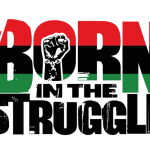Here are the top posts for the week of July 13-19, 2015 on the Rhetoric Race and Religion Blog. We ask that you share this with others.
1. We Have to Dismantle White Supremacy Before We Can Forgive
by Leah C.K. Lewis
Black—and usually Christian—forgiveness given freely, publicly, and without demand for recourse and redress of injury is exceedingly problematic in our communal quest for justice—personal and social. African Americans historically have been conditioned to humble ourselves at the altar of white supremacy. This must stop.
In order to bend the arc of the moral universe toward our equitable and humane treatment, African Americans must stop kowtowing and being complicit in our own dehumanization and subjugation. As victims of terror, we have absolutely nothing to be contrite about.
The Church, of which I am currently a part, must stop teaching a faux-narrative that makes weaklings out of believers. Narratives that focus on forgiveness, but not on self-actualization, the development and use of power, and offender accountability fail to produce the type of happy, healthy, whole practitioners that the Gospel intends. Our focus ought to be in developing and cultivating good old fashion power. Yes, power is a paradigm promoted by Jesus Christ, that Northeast African Palestinian Jew.
2. The Argument *Against* the Multicultural Church
If churches do enter into a journey of multicultural worship, it is essential that safe refuge be available for congregants of color. This is also why it is important that when such endeavors are undertaken, they not ultimately be headed by white pastors and leaders (and they so often are). It’s why we must hedge toward the marginalized culture in planning worship services and events, rather than compromising squarely in the middle. Because there is no ‘happy medium’ when one group is so disproportionately abused.
3. R3 and the Digital Humanities: The Henry McNeal Turner Project
by Andre E. Johnson
I discovered Henry McNeal Turner by accident. While starting a seminar class in rhetorical criticism and trying to hone in on a dissertation topic, I ran across a speech delivered by Turner. He delivered the speech on the floor of the Georgia House of Representatives as the House debated whether African Americans could hold office in the state of Georgia. I remember reading the speech and wondering if anyone had studied Turner’s rhetoric.
However, there was a problem. Since Turner lived during the nineteenth and early twentieth centuries, it was my belief that texts to study Turner would be difficult to find. Turner, like many of his contemporaries during this time, spoke extemporaneously—not from notes or prepared texts. Moreover, unlike many other speakers during this time, Turner did not travel with a stenographer—or someone who could have written what Turner said for later publication. Going into my project, I only hoped there were enough texts to do a solid dissertation.
4. R3 Reflections: Confederate Flags and Cosby
by Doctah Lele, Cicely Wilson, Alma Faith Crawford, and Victoria D Parker
I didn’t think I would be so emotional watching the #Confederate flag’s removal. But then, I should think it not strange. The ancestral blood of my Lowcountry peeps ripped from the shores of the West Indies and West Africa still runs warm in my veins. The symbol that reminded them “ya’ll ain’t neva gon be free” reminded me of the same. While some onlookers were chanting secular spirit songs, I saw some people worship. Not worshipping the moment, but a God who does all things well. We couldn’t understand it two weeks ago, but God knew there would be glory in this story. Days of grieving are still ahead for #Charleston and family members of the#Emanuel9. But this I do know, evil did not have the final say! And what the enemy meant for evil…
40 women cannot be wrong. I was watching FoxNews (pray I don’t go to hell..lol) in which they had Jimmy JJ Walker and his words…he believed that Cosby was perhaps a Jekel and Hyde type because he never saw this character in Cosby. It is so sad that we tend to always believe the male. I never told any one when it happened to me who was going to believe a little kid against an almost grown man? But I must say he got his because later in his life he was killed by his wife. But my spirit had to be freed and I learned to journal. I promised myself I would always believe her or him in the event if sexual misconduct against her or him esp.if they are minors and her just because she is.
5. Confessions of a Woman Who Preaches: On Being a Sacred Listening Partner
I have walked with women who left home, left school, left church, left town…because some sadistic pervert violated their bodies.
I’ve taught bible studies about the silent abuse of women intertwined and ignored in sacred text. I’ve watched women run out of the room, burst into tears, and even experience mental regression because of the land mines in their memories.
I listened to stories of incest and molestation in childhood that is still bringing grown women to their knees. I’ve talked to prostitutes who first trick was someone who should have been the first to teach them their worth.
I’ve sat with women as they got rape tested and women who held their breath hoping they were not pregnant.
I’ve heard so much that I needed therapy to clear my head, heart, and soul.











